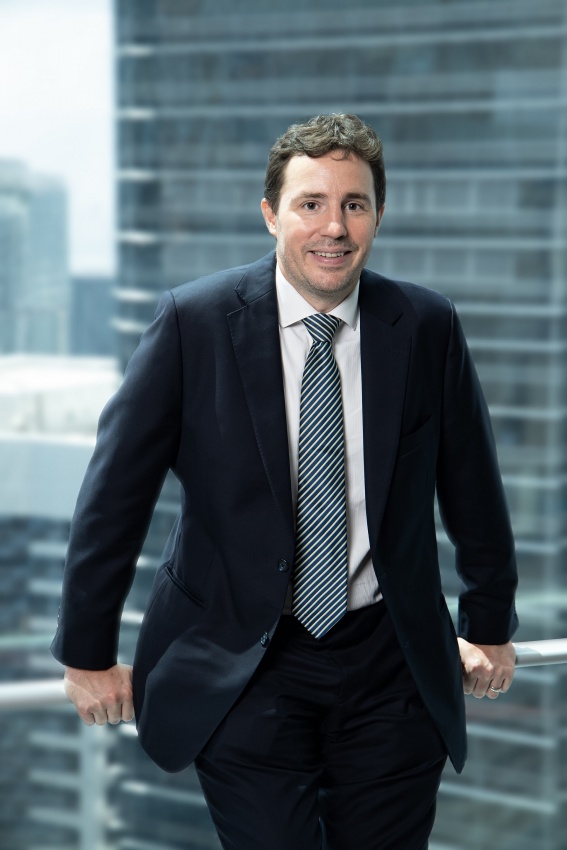Cushman & Wakefield sees potential for investment in Vietnam
 |
| Gordon Marsden, regional director, APAC Capital Markets Cushman & Wakefield |
What is your assessment of mergers and acquisitions (M&A) in the property market in Vietnam and the wider region?
I’d like to widen the question slightly and not just focus on M&A but also consider the investment activity in the areas of club deals, joint ventures, and partnerships, as it is these that have sustained a lot of the regional real estate activity during the pandemic. Investors are always looking for growth, market access, and talent. They’re also looking for distressed assets, although we don’t see much of that in the Asia-Pacific (APAC) region.
For some of the biggest investors to be able to deploy capital throughout APAC, it has been necessary for them to seek out M&A activities and find local partners and skilled talents. These “boots on the ground” will help them deploy capital and execute asset management. These types of ownership considerations are also relevant to the Vietnam market, where a form of partnering is often essential.
Vietnam is no different compared to the region. Since there are relatively few stabilised income-generating transactions, as most of the activities are development orientated, we see a few more M&A deals coming through in the market, but there is also a lot happening in the joint ventures, club deals, and partnership areas.
According to the Reset 2022 survey, Vietnam ranks among the top emerging markets for investors. Can you share more on this result and Vietnam’s potential and challenges in the eyes of international investors?
The Reset 2022 is a three-part series, and the favourable results for Vietnam were drawn from the investors’ survey conducted in the second part. The reality is, in a more cautious and uncertain world, investors gravitate towards more developed economies. There is abundant liquidity out there waiting for an inflection point when interest rates and inflation stabilise and the cost and the availability of debt finds a new level.
From what I have seen during my regional trips, the fundamentals and resilience of the Vietnam real estate market are high. The challenge for Vietnam right now is simply competing for air time, not just in the context of Southeast Asia, but competing for air time across APAC as a whole. On many indicators, Vietnam is ahead of its counterparts in Southeast Asia.
Last quarter, capital flows into real estate through bank credit and bonds were limited, while foreign direct investment (FDI) remained the bright spot.
The latest data from the Foreign Investment Agency shows that in the first nine months of 2022, FDI disbursement continued to increase sharply to reach $15.4 billion, up 16.2 per cent on-year.
GDP in the first nine months increased by 8.83 per cent on-year, the highest 9-month increase in the past 10 years.
CPI inflation in Vietnam is well controlled and continues to be in the countries with low inflation growth compared to the general average.
The survey results reflect Vietnam’s positive fundamentals, and international investors are noticing and taking action. As this momentum continues, there is little doubt the country will continue to be a favoured destination for foreign investors.
What should Vietnam do to attract more investment?
It is important to create an environment that allows for the long-term holding of real estate, where the owners and operators are encouraged to deliver high-quality asset management and to continuously invest in the upgrading and ongoing commitment to environmental, social, and governance (ESG).
There are various models and examples regionally and globally to make that happen, and much depends on creating the right tax environment. This applies to the initial investments in building the real estate or injecting it into the right structure, and secondly for institutional or retail ‘mom and pop’ investors to participate and share in the success of those assets.
There is a focus on investing in infrastructure, especially upgrading important transport facilities like highways and ports, and this is increasing Vietnam’s competition index ranking. These upgrades are already contributing to robust growth in the logistics and industrial sectors and the wider economy.
Last but not least, keep banging the drum and keep reaching out to sustain the positive momentum and market dynamics that exist today. Protect the amazing attributes of the country, most notably the coastline and forests, and continue to support up-skilling and improving skilled talents for domestic and international companies.
What are the investment trends in the region right now? Which area will be a hotspot for foreign investment?
There are three themes that we observe in the region and Vietnam. First, investors are deploying capital thematically, which means they are focusing on long-term trends and increasingly aligning their organisations along those thematics rather than by geography.
The second trend has not happened in abundance yet, but investors will eventually wake up to the office dynamic here in Vietnam. We have not seen massive oversupply, and thus, we have seen rental resilience. Despite some predicted doom and gloom sentiment around the relevance of the office post-pandemic, over the medium term, the potential for growth of this sector is quite positive.
Regionally, the office is the largest segment among asset classes and will likely remain so for many years.
Vietnam is fundamentally undersupplied for Grade-A, high-quality office spaces as the past five years have seen no new supply of this asset, and the number of projects to be launched in the next two years is scarce. The growth in this sector in Vietnam will be driven by rapid urbanisation, the rise of the young, skilled workforce, and continuous demand from companies looking to set up business here.
Last but not least, people need a place to live and enjoy their freedom. Not everyone will want to or will be able to get on flights and leave the country for holidays. Once again, investors are increasingly talking about the “Living” thematic or even “Living in all its forms.” Vietnam can offer investors opportunities in this space, from models based on residential for lease, to improvements in hospitality and hotel stock.
 | Cushman & Wakefield Vietnam expands talented leadership Global real estate firm Cushman & Wakefield has further strengthened its operations in Vietnam with the addition of Trang Bui as general manager and 20 market-leading commercial real estate professionals. |
What the stars mean:
★ Poor ★ ★ Promising ★★★ Good ★★★★ Very good ★★★★★ Exceptional
Related Contents
Latest News
More News
- An Phat 5 Industrial Park targets ESG-driven investors in Hai Phong (January 26, 2026 | 08:30)
- Decree opens incentives for green urban development (January 24, 2026 | 11:18)
- Public investment is reshaping real estate’s role in Vietnam (January 21, 2026 | 10:04)
- Ho Chi Minh City seeks investor to revive Binh Quoi–Thanh Da project (January 19, 2026 | 11:58)
- Sun Group launches construction of Rach Chiec sports complex (January 16, 2026 | 16:17)
- CEO Group breaks ground on first industrial park in Haiphong Free Trade Zone (January 15, 2026 | 15:47)
- BRIGHTPARK Entertainment Complex opens in Ninh Binh (January 12, 2026 | 14:27)
- Ho Chi Minh City's industrial parks top $5.3 billion investment in 2025 (January 06, 2026 | 08:38)
- Why Vietnam must build a global strategy for its construction industry (December 31, 2025 | 18:57)
- Housing operations must be effective (December 29, 2025 | 10:00)

 Tag:
Tag:



















 Mobile Version
Mobile Version